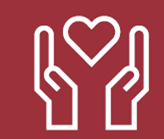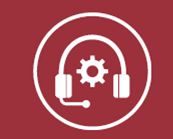SU-Africa Global & Public Health Student Network Initiative
PROJECT OVERVIEW
Why the need for SU Africa Global and Public Health student network?
The COVID-19 pandemic has revealed the leadership capabilities and the wealth of public health expertise on the African continent. It also highlighted Africa's ability to respond to health crises despite inherent challenges and global power asymmetries. Despite these achievements Africa's response to critical public health issues remain fragmented, and access to resources unequal. Local manufacture of health technologies requires strengthening and investment.
Strong leadership is required to drive agendas towards strengthening the continent's global and public health response to these and other priority issues. These leaders and practitioners should work to capacitate and inspire and the next generation of health professionals, and public health practitioners should respond to new and emerging challenges and opportunities.
What is the purpose of the SU-Africa Global and Public Health student network?
To build an African global and public health community of practice (comprising of students, academics, and practitioners) which is focused on enhancing knowledge, practice and skills regarding priority current and future global and public health issues relevant to the African continent.
The project seeks to transform students and practitioners alike into change agents and leaders who co-create solutions and can transcend boundaries (e.g. work with communities and operate at higher levels) and have a deep understanding of the contexts within which they work, whilst understanding broader regional and global issues and influences.
A specific focus will be placed on initiating this project within Stellenbosch University, co-creating it with students, and expanding it to include other higher education institutions and organisations on the continent. An additional aspirational aim is to ensure that South African students' and practitioners better understand global and public health issues; to learn more about how various African institutions have responded to these issues (e.g. Africa CDC and Africa Union initiatives); to connect with and build networks with students and health professionals in other African countries; and to learn from and contribute towards strengthening global and public health responses faced by the continent.
What is the context for this initiative?
To the African Union and Africa CDC have embarked on a series of initiatives to strengthen public health on the continent. Through its framework for action, A New Public Health Order for Africa (NPHOA), and its work, Africa CDC seeks to promote opportunities and commitments to 'address deeper structural public health deficiencies at national, regional and global levels'.[1]
Higher educational institutions are well-placed to drive and promote the NPHOA agenda; to gear research, education and awareness towards raising knowledge and practice; and to raise a new generation of public health practitioners across the continent who are 'pan-Africanalist' in their thinking and practice, collaborative and committed to building an Africa for Africa.
Seasoned global and public health African leaders, educationalists and practitioners hold great knowledge and wisdom. It is imperative that global and public health competencies are transferred from them to the current and next generation, and that they serve as role models who will galvanise public health practice on the continent and ensure that there will be public health in all health practice and policies. In this way a generation of African global and public health leaders will Futureproof Public Health as the continent hold great potential.[1]
https://africacdc.org/news-item/the-new-public-health-orderafricas-health-security-agenda/
Building a Community of Practice
Communities of Practice (COP) are characterised by members' shared interests – “… groups of people who share a concern or a passion for something they do and learn how to do it better as they interact regularly." [1] It typically comprises of a mix of experienced practitioners, experts and newcomers to the topic, field or discipline. A key part of building a COP is interaction and engagement - to collectively engage in joint discussions and activities, information sharing and mutual assistance. Members share mechanisms for solving recurrent problems, their experiences and other resources as a form of shared practice. Some of the activities which can be conduits for practice development are problem-solving; requests for information; seeking experience (examples); discussing new developments; and visits. It is envisaged that the initiatives presented in this project will enhance knowledge, skills and practice through leveraging a range of activities that will facilitate the development of a COP where practitioners can enhance their global and public health practice and knowledge. [1]https://www.wenger-trayner.com/introduction-tocommunities-of-practice/
WHAT WILL WE DO?
The programme of activities are presented in the table below. These activities will serve as a pilot for future programme initiatives. Monitoring and evaluation of the programme will be conducted.

Launch
An online session aimed at formally kickstarting and introducing the initiative.
 Introducing Global Health: African perspectives webinar series.
Introducing Global Health: African perspectives webinar series.
A series of webinars targeting health professions students. Key global health concepts and topics will be introduced and discussed.
 Social media communications and 'challenge'
Social media communications and 'challenge'
To market the programme, to raise awareness of key global and public health topics, to serve a mechanism for networking and knowledge dissemination.
WHAT WILL WE DO?
Learning or capacity building sessions Select opportunities (online or in-person) where global and public health experts are interviewed, or contemporary issues of relevance to Africa are discussed.
Field visit(s)
In-person, local visits to sites which will spark debate, reflection and action. Students will have an opportunity to apply participatory action research or arts-based skills to solving local public health problems.
CORE TEAM
 Prof René English
Prof René EnglishActing Head of Global Health
Head of Division of Health Systems and Public Health

